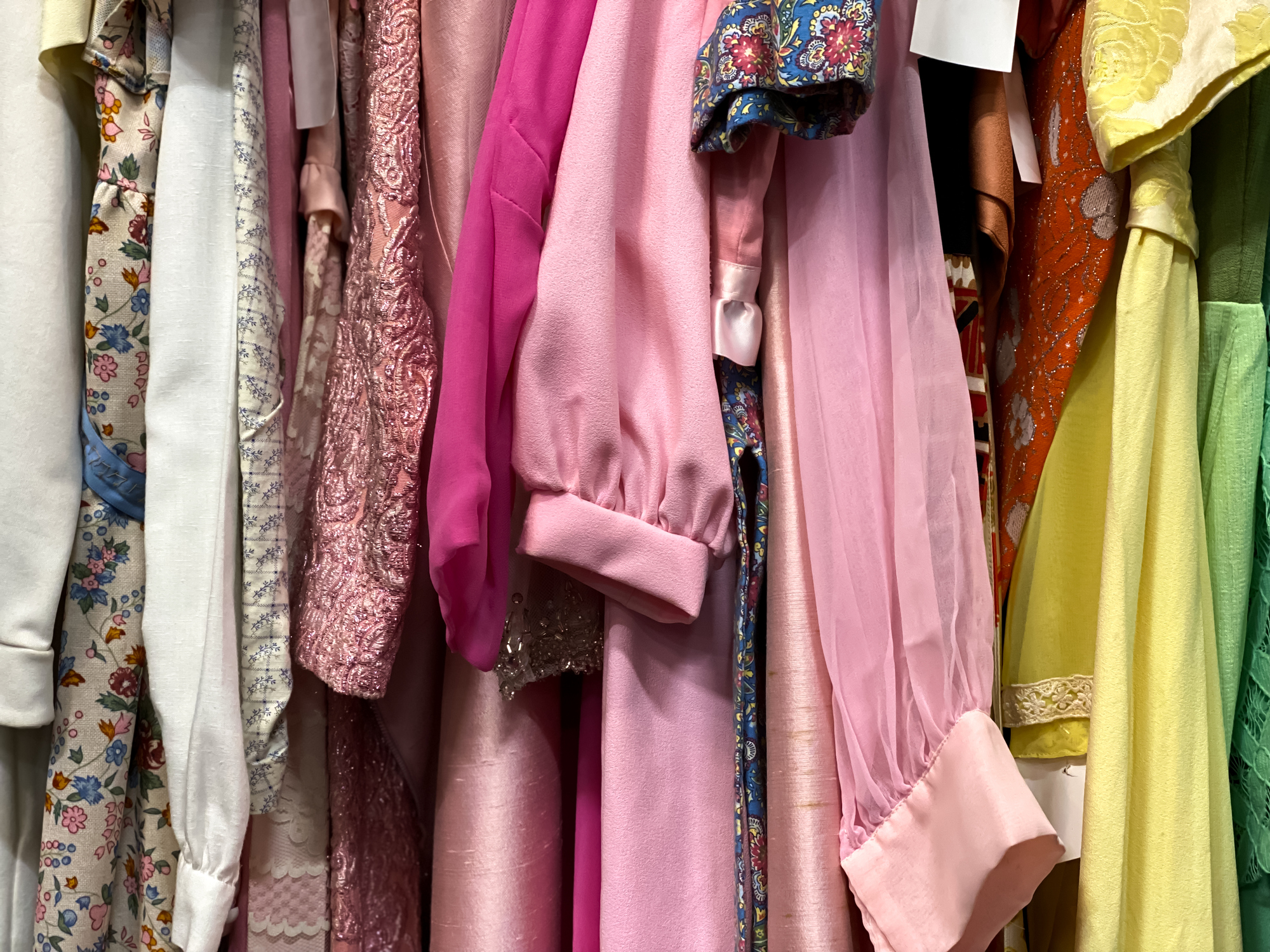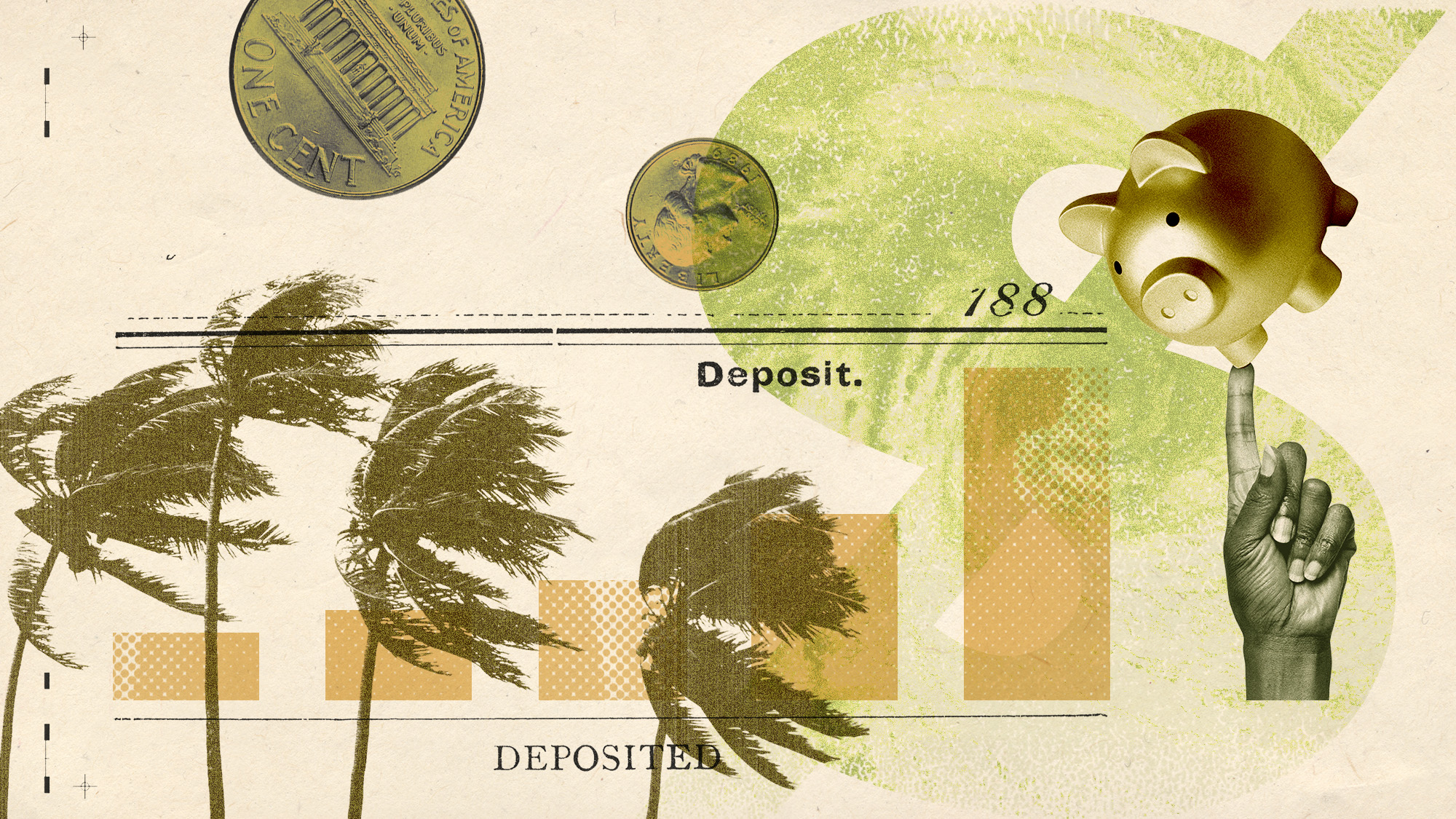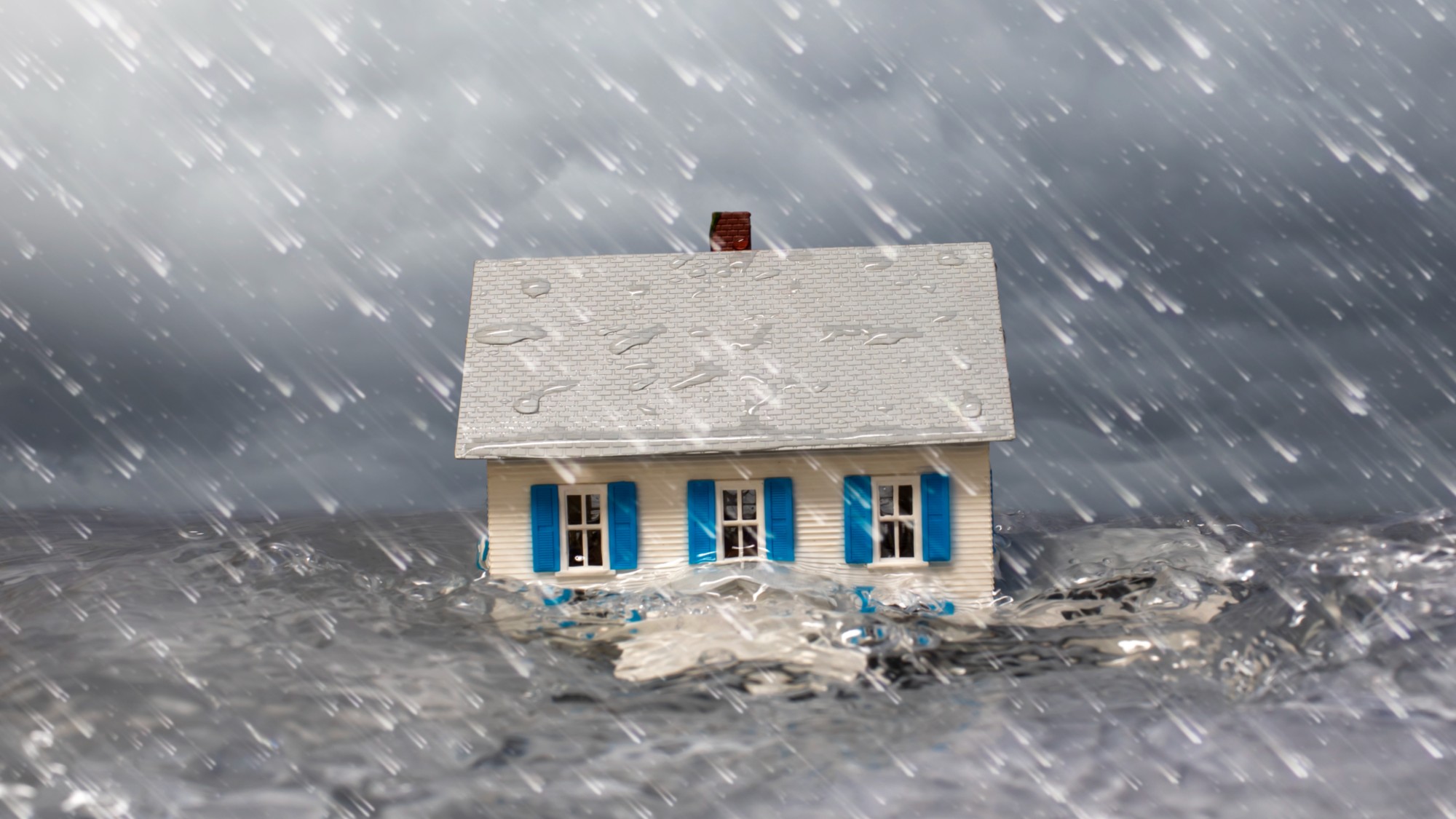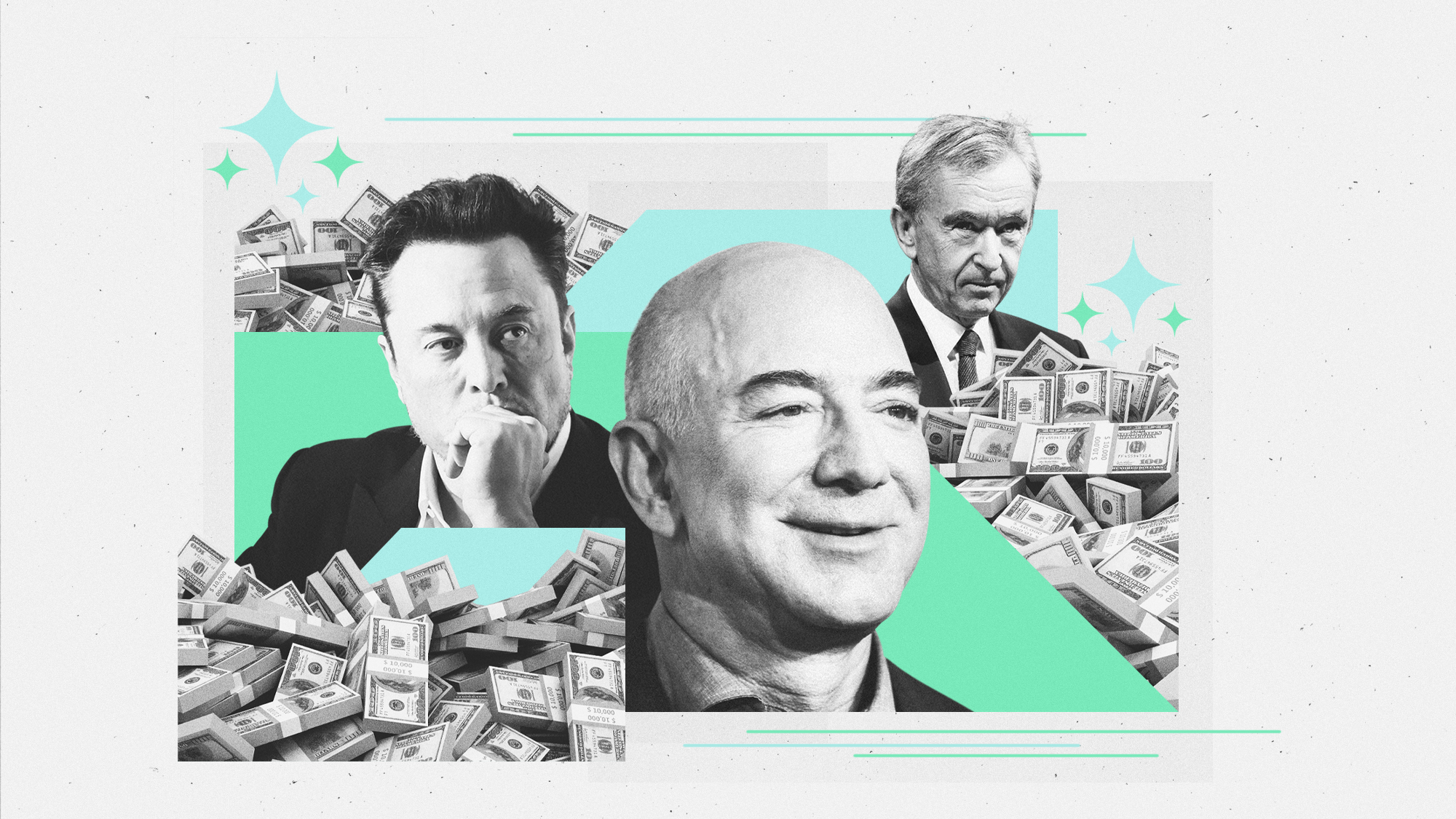Why fashion may never be sustainable
And should we even believe it if we see it?


A free daily email with the biggest news stories of the day – and the best features from TheWeek.com
You are now subscribed
Your newsletter sign-up was successful
These days, it seems as though every clothing brand is marketed as "sustainable," a welcome classification for the eco-conscious customer looking to shop a little greener. But upon further inspection, that crucial descriptor might actually serve as an example of "greenwashing," or "a form of misinformation often used to entice an aspiring green consumer," per National Geographic. Instead of doing much to actually better its environmental footprint, a large fast fashion brand engaged in greenwashing might simply market its clothes as "natural" or "biodegradable" and hope that does the trick. That's not to say that every company presenting as "sustainable" is lying. But it is worth noting the arguments against the idea of sustainable fashion, and how reaching for such a categorization might, if handled hastily, do more harm than good.
How does the fashion industry impact the environment?
"The precise negative environmental impact of the fashion industry remains unknown, but it is sizeable," former Timberland COO Kenneth P. Pucker wrote for Harvard Business Review in 2022. There are, of course, estimates — the United Nations Alliance for Sustainable Fashion, for example, alleges that the clothing and textile industry is responsible for an estimated 2-8% of the world's greenhouse gas emissions — but its global nature and "multitiered supply chain," as Pucker described it, make a decisive number difficult to pin down.
"Unlike any other industry, fashion is integrated into the global economy," George Harding-Rolls, a campaign manager at Changing Markets Foundation, told Harper's Bazaar in the fall of 2022. "So trying to find accurate data on any single one of those things is difficult."
The Week
Escape your echo chamber. Get the facts behind the news, plus analysis from multiple perspectives.

Sign up for The Week's Free Newsletters
From our morning news briefing to a weekly Good News Newsletter, get the best of The Week delivered directly to your inbox.
From our morning news briefing to a weekly Good News Newsletter, get the best of The Week delivered directly to your inbox.
Why is sustainability so elusive?
At its core, fashion is a system "premised on growth," Pucker explained. Combine that "with accelerating product drops, long lead times, and global supply chains, and the result is inevitable overproduction." But many of the common steps fast fashion brands are taking to reconcile with both this and an increased consumer focus on green products "are not having their intended effect."
Recycling, for example, "is oversold" and "does little to limit environmental damage while exacerbating inequality," Pucker noted. And corporate social responsibility reports, now a mainstay for all public fashion companies, "do not accurately quantify the full carbon emissions profile of fashion brands and remain unaudited by external parties." Indeed, in a 2023 analysis from Stand.earth that ranked 43 "of the most influential fashion companies on their efforts to phase out fossil fuels," 51% received an overall grade within the D range, while six companies received Fs. No company received an A, and just one — H&M — got a B-. This is all despite previous climate commitments from many of the brands ranked.
At its core, even the term "sustainable fashion" is an oxymoron, Vanessa Friedman, the chief fashion critic at The New York Times, wrote last spring. How does one square a business built on overconsumption and constant change with longevity? A better framing for the conversation moving forward would be "responsible fashion," wherein "all players … take responsibility for their part in the supply chain and the creative process."
Can sustainability efforts backfire?
Let's say a statistic was found to have overblown the fashion industry's effects on the environment, but only after brands pledged positive action. Wouldn't that ultimately be a good thing? Not necessarily, Alden Wicker, founder of Ecocult, told Harper's Bazaar, citing one such now-debunked stat — that the fashion industry was the second most polluting in the world — in his explanation. "There has been a lot of discussion about how the 'second most polluting industry' stat galvanized action so maybe it was okay, but it didn't," he said. "It galvanized promises and greenwashing. It was an amorphous figure that … allowed the industry to make these similarly vague, unmeasurable climate promises that they're not going to reach."
A free daily email with the biggest news stories of the day – and the best features from TheWeek.com
Certain sustainability "solutions" could also promote outcomes worse than the status quo, Beth Esponnette, co-founder of unspun, a fashion tech startup, exclaimed in Business of Fashion. Things like in-store take-back programs, which offer consumers a convenient (and morally satisfying) place to drop off old clothes while shopping for new ones, "can be worse than taking no action at all." Even recycled polyester made from water bottles, allegedly utilized by companies like H&M and Everlane, is a no-no, per Muhannad Malas, then-senior climate campaigner at Stand.earth. "They are promoting the use of wasteful single-use plastic bottles, which are the feedstock for these fabrics," he told Fast Company in 2021.
How can we fix the situation?
Retiring the word "sustainability" would be a good start, Pucker suggested, because "less unsustainable is not sustainable." Fashion brands should also not be allowed "to simultaneously profess their commitment to sustainability, while opposing regulatory proposals that deliver the same end," he added, citing Nike as a purportedly climate-committed brand that lobbied against the Build Back Better bill and its climate provisions.
"The first step companies must make is to commit to phasing out fossil fuels by 2030," Malas added in 2021. This will "spur" the necessary kind of market innovation, like the development of new materials, and offer a "way for consumers and investors to hold companies accountable for the goal they've set."
Better data should also help un-muddy the waters, Changing Markets Foundation's Nusa Urbancic told Harper's Bazaar last year. "Basic information is difficult to dig out, but once we have mandatory legislation, this will change."
Brigid Kennedy worked at The Week from 2021 to 2023 as a staff writer, junior editor and then story editor, with an interest in U.S. politics, the economy and the music industry.
-
 Local elections 2026: where are they and who is expected to win?
Local elections 2026: where are they and who is expected to win?The Explainer Labour is braced for heavy losses and U-turn on postponing some council elections hasn’t helped the party’s prospects
-
 6 of the world’s most accessible destinations
6 of the world’s most accessible destinationsThe Week Recommends Experience all of Berlin, Singapore and Sydney
-
 How the FCC’s ‘equal time’ rule works
How the FCC’s ‘equal time’ rule worksIn the Spotlight The law is at the heart of the Colbert-CBS conflict
-
 Why the catastrophe bond market is growing
Why the catastrophe bond market is growingThe Explainer The bonds pay for climate change disaster damages
-
 Why are home insurance prices going up?
Why are home insurance prices going up?Today's Big Question Climate-driven weather events are raising insurers' costs
-
 Christmas trees: losing their magic?
Christmas trees: losing their magic?In the Spotlight Festive firs are a yuletide staple but are their days numbered?
-
 The ocean's blue economy is growing. Can the tide continue to rise?
The ocean's blue economy is growing. Can the tide continue to rise?The Explainer The big blue is bringing in the green
-
 The rise of the world's first trillionaire
The rise of the world's first trillionairein depth When will it happen, and who will it be?
-
 The surge in child labor
The surge in child laborThe Explainer A growing number of companies in the U.S. are illegally hiring children — and putting them to work in dangerous jobs.
-
 Your new car may be a 'privacy nightmare on wheels'
Your new car may be a 'privacy nightmare on wheels'Speed Read New cars come with helpful bells and whistles, but also cameras, microphones and sensors that are reporting on everything you do
-
 Empty office buildings are blank slates to improve cities
Empty office buildings are blank slates to improve citiesSpeed Read The pandemic kept people home and now city buildings are vacant
